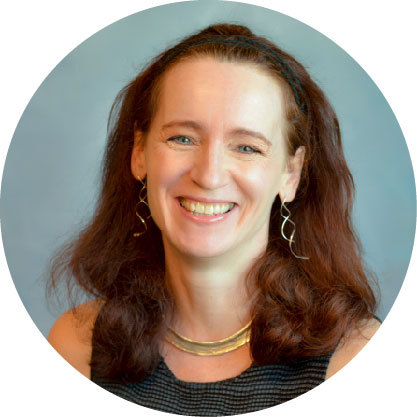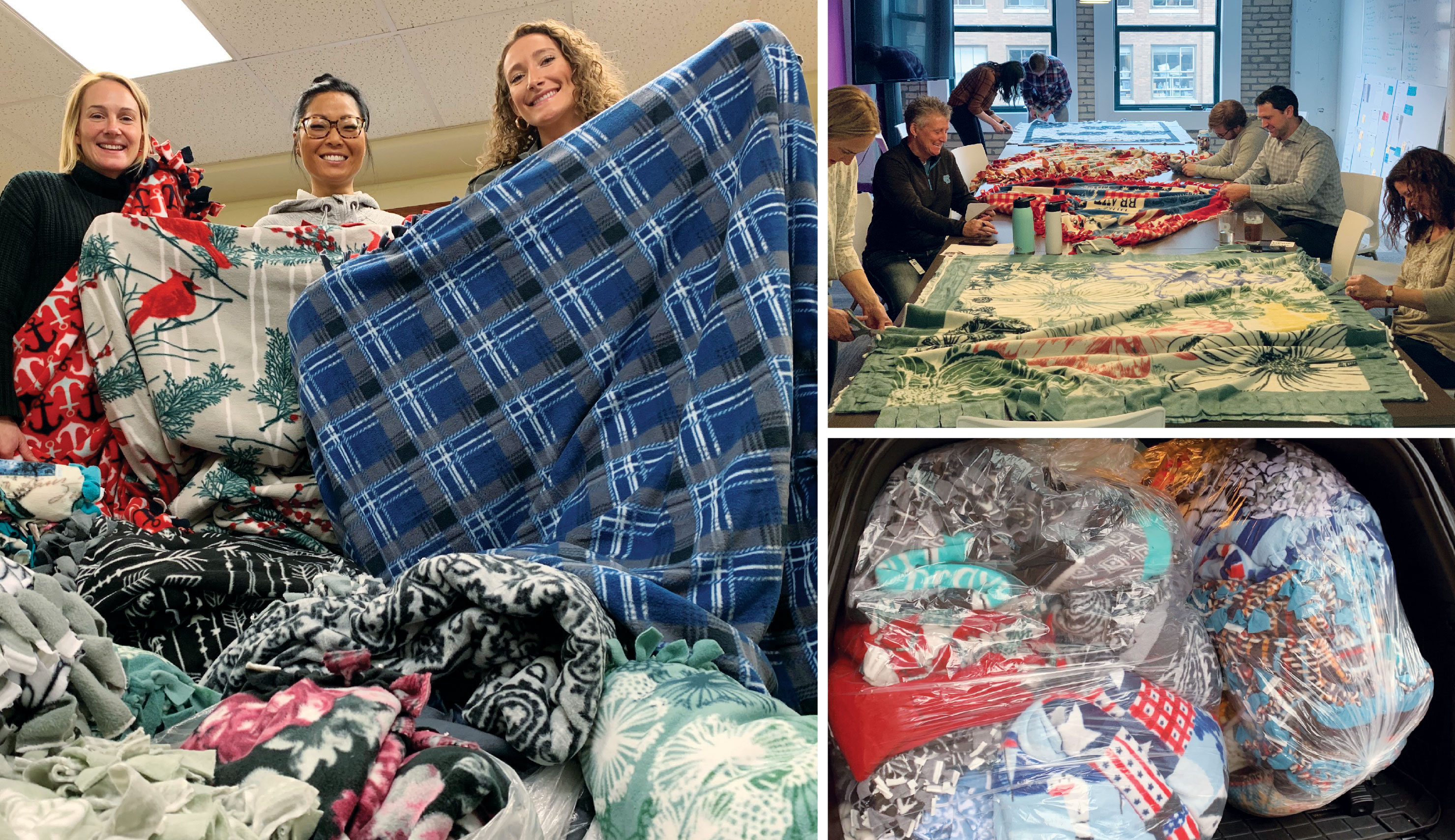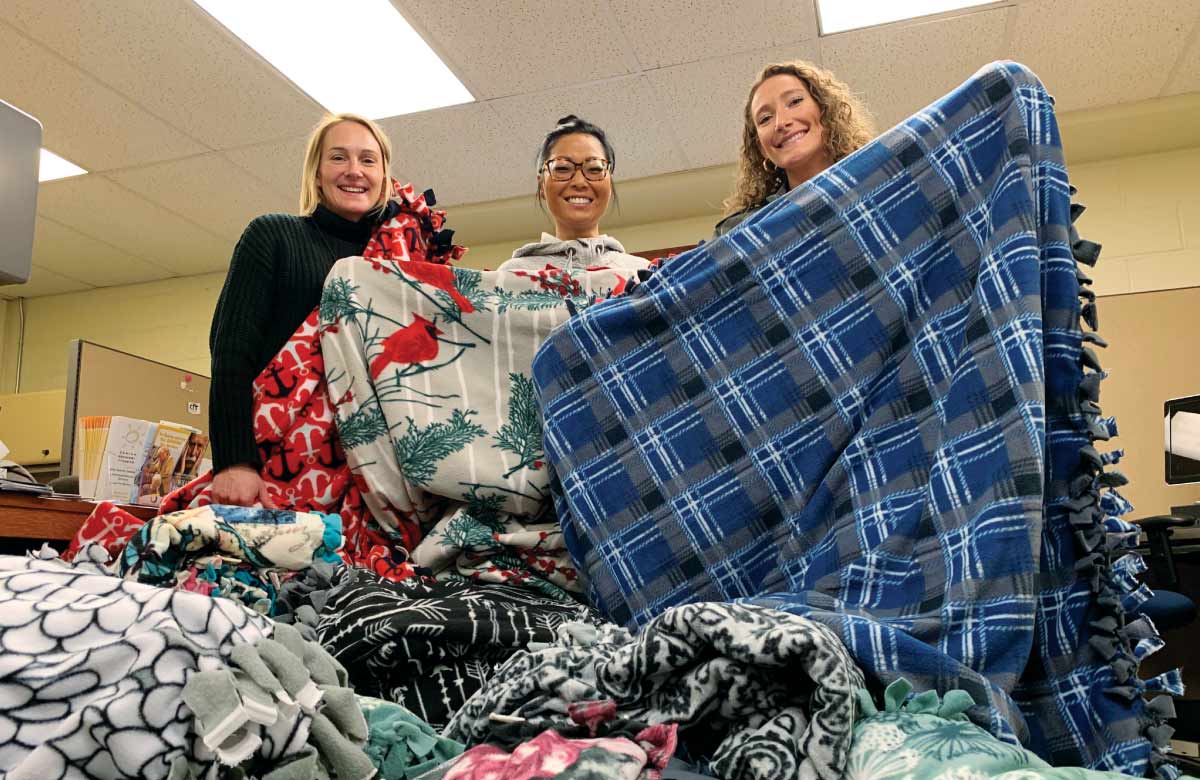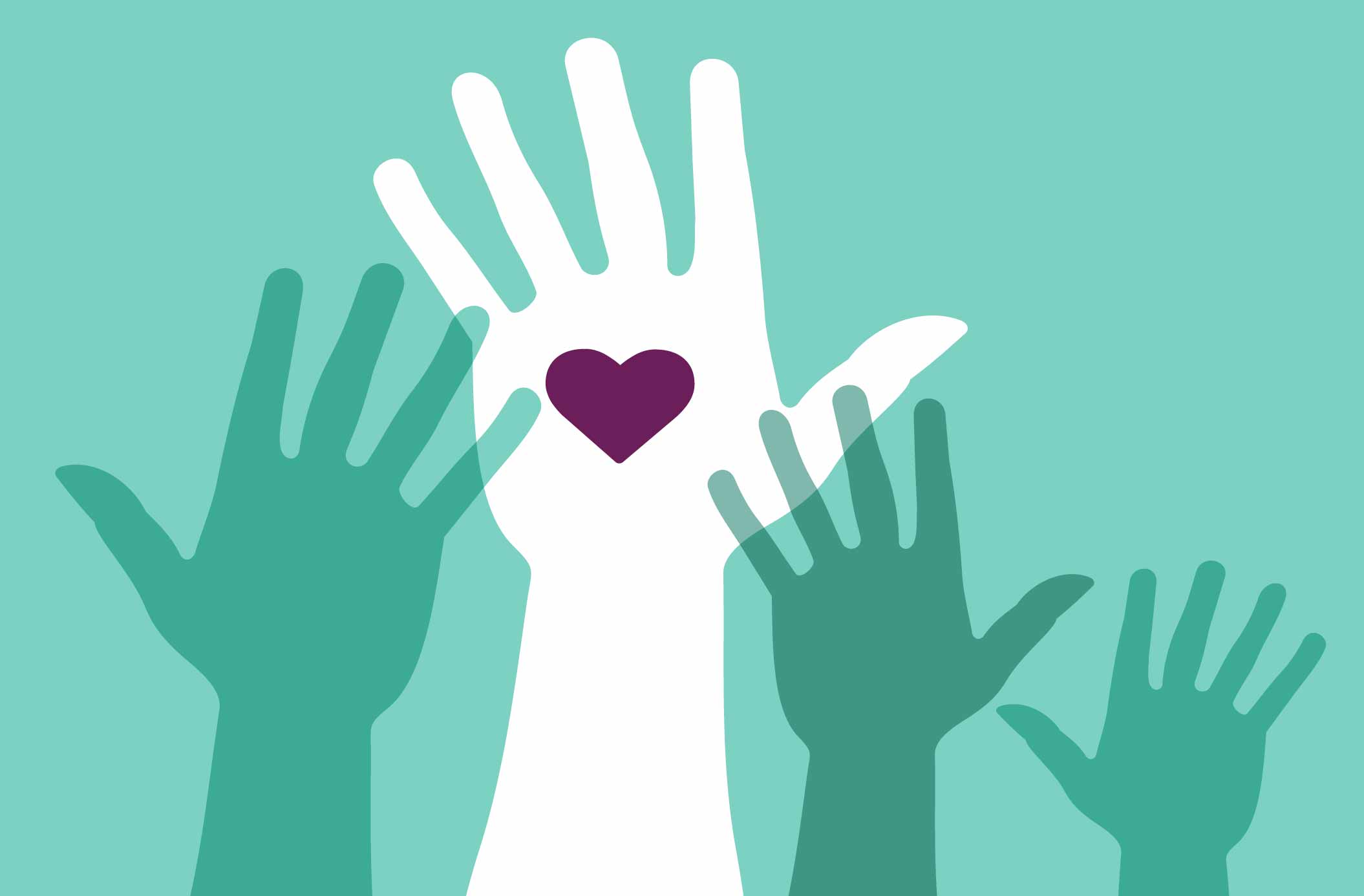Each year Revel chooses to partner with a local organization in the Twin Cities around the holiday season to help brighten the lives of those in our community that need it most. This year, we are working with Little Brothers – Friends of the Elderly (LBFE), a non-profit volunteer-based organization committed to relieving isolation and loneliness among the elderly.
Read the highlights of our interview with Georgia Afton below or listen to the full conversation on episode 14 of Revel’s podcast, RadioRev.
We sat down with Georgia Afton, Community Outreach Director, LBFE to learn more about the great work the organization is doing for elders in our community.
What is the overall mission for Little Brothers – Friends of the Elderly?
Our sole purpose is to end elder loneliness and isolation. It’s the only reason I come to work everyday and the only reason our volunteers walk through the door.
How did the organization get started?
LBFE has a fascinating history! The organization was founded in Paris, France in 1946 in the devastating aftermath of WWII by a man named Arman Marquiset. Among the elder population, Armand recognized that critical needs such as shelter, healthcare, food, and clean water were being addressed. But an equally important, yet invisible need was going unaddressed.
Among the elders he sought to help, most of whom had lost their family and friends in the war, nothing was being done about the need for human connection.
Out of this realization, Armand made it his mission in life to end elder loneliness and isolation through the power of friendship. His dream was to light little fires of love all around the world and today that dream is a reality as the organization serves over 55,000 elders in 10 countries with over 20,000 volunteers. Each volunteer adds their flame, their passion, the warmth and kindness of their friendship to the mission of ending elder loneliness and isolation.
Can you share some insights into how isolation and loneliness affect people, especially the elderly community?
The situation is serious. Let me start by widening the scope of the question to the societal impact and then circle back to a story of a single elder’s struggle with loneliness.
When we think of national health epidemics, we tend to think of issues like vaping or the opioid crisis. But elder loneliness and isolation is also a national health epidemic with equally huge and concerning ramifications.
More than 8 million adults age 50+ are affected by isolation. With 10,000 people turning 65 in the United States everyday it is urgently concerning that lonely people have a 64% increased risk of developing dementia tied to the disturbing fact that 26% of adults face increased risk of early death due to subjective feelings of loneliness.
“We are all elders in training and the fact that at the end of the day it’s not the job you have, the education you get, the house you live in, or the status you achieve that matters most, but the relationships you have that are the most meaningful aspect of our existence.”

Georgia Afton
Community Outreach Director, Little Brothers – Friends of the ElderlyTitle…
Listen NowWhat about loneliness up close and personal?
I have a story to share with you about Beth that’s not at all unusual. Here’s the context of her situation and the level of isolation she was facing prior to becoming a member of LBFE. She is 77 years old, living alone in a high-rise in downtown Minneapolis. Her income is below the poverty line and she’s confined to a wheelchair.
She used to work as a clothing designer—her decades long passion was creating and sewing beautiful clothes. Unfortunately, arthritis and failing eyesight put an end to her sewing days. Her other passion in life is baking, but she has difficulty accessing her kitchen shelves and appliances from her wheelchair. She is a widow of 22 years and her only daughter lives overseas and visits, letters, and calls are rare.
Prior to connecting with LBFE, the only interaction she had with another person each week was when a hurried delivery driver would drop off her groceries. She never even learned his name because he was always rushing off to the next delivery. This is the amount of social contact Beth was having in one week. It would be fair to say the way she was living was tantamount to solitary confinement.
This year, the Revel team made blankets for the elders in the Little Brothers community – how are those used?
Let me start by giving a huge shout-out to Revel because you set the record for number of blankets made—46 blankets! You are a model for other organizations out there who could learn a lot from the example you set and we really appreciate it.

“The blanket I received keeps me warm and cozy physically, but it also keeps me warm and cozy in my heart because I know that blanket was made by someone just for me.”
An elder friend in the LBFE community
But, back to how we use the blankets—it’s really fun. When we have volunteers come in for their volunteer training session, we invite each volunteer to take a blanket to give their new elder friend as a gift on their first visit. It’s a great icebreaker and we’ve gotten many notes from elders about how much it means to receive one of those cozy handmade blankets. So that’s the impact Revel is having by making all of these blankets—you are personally impacting 46 individual elders. It’s huge.
How can people get involved?
We are always happily accepting volunteers in our various elder programs! To get involved you can visit our website or call us for more information.
Website: https://www.littlebrothersmn.org/volunteer/
Phone Number: 612-721-1400
If people only take away one thing about LBFE today, what do you want people to know?
Little Brothers – Friends of the Elderly is alone in its sole focus on ending elder loneliness and isolation. The good news is that unlike the opioid epidemic, the loneliness epidemic is something every single one of us can do something about. We offer volunteers an opportunity to do just that. In addition to more volunteers, we need great corporate partners like Revel that help us reach a broader audience of potential volunteers and potential elders.




